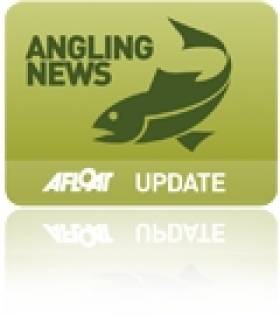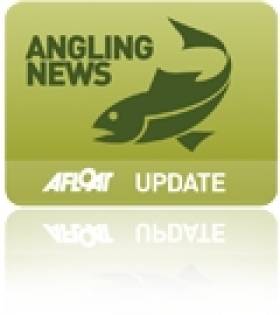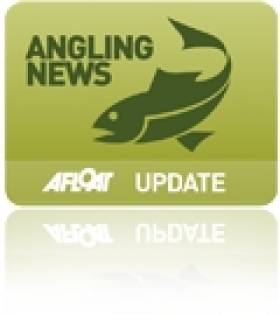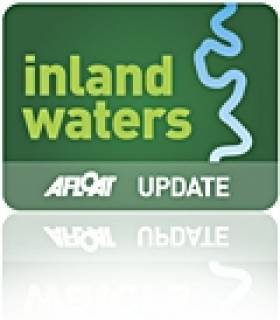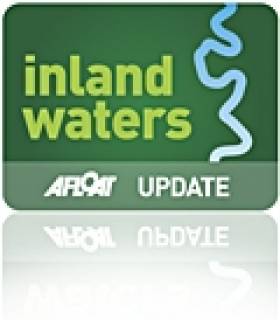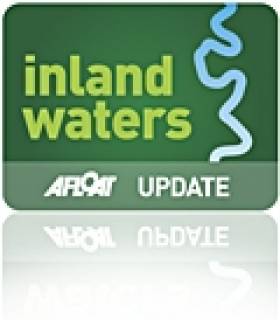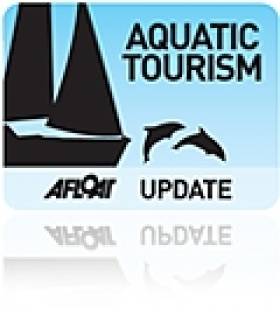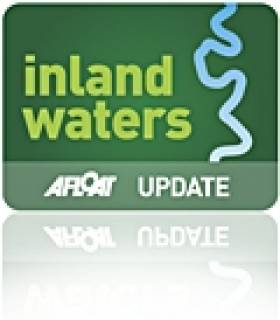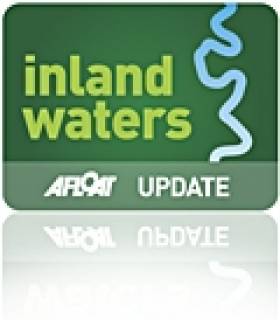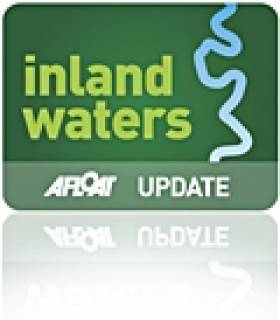Displaying items by tag: inland waterways
NI Anglers Urged To Review Shrimp Bait Ban Proposals
#Angling - The use of prawns and shrimp as bait in salmon angling could be banned in Northern Ireland under proposed restrictions on salmon and sea trout fishing, as Farming Life reports.
Aside from the bait regulations, Stormont is also putting forward a ban on commercial salmon netting and the introduction of a catch-and-release scheme for sport anglers in an effort to reverse dwindling salmon numbers in Ulster's inland waterways.
The moves come following an earlier voluntary ban on offshore salmon fishing in an effort to bolster wild salmon stocks which were last year feared to be "around dodo levels".
Similar restrictions were proposed this year for the River Suir - although anglers in Enniscorthy won support from Inland Fisheries Ireland last year in their call to lift a shrimp bait ban on their downstream fishery on the River Slaney.
Ulster Angling Federation chair Jim Haughey has urged angling club officials across Northern Ireland to study the consultation document published by the Department of Culture, Arts and Leisure with a view to making informed submissions on the proposed changes.
Farming Life has much more on the story HERE.
'Fish In Distress' Alert as Water Levels Fall in Heatwave
#Angling - Inland Fisheries Ireland (IFI) is seeking the help of anglers and the general public to report any sightings of distressed fish due to high water temperatures or low water levels.
The national fisheries body also requests that anglers voluntarily cease using keep nets during this period, so as not to cause unintentional distress to fish kept for long periods in these nets.
Reports may be made to the local fisheries offices or the 24-hour hotline number on 1890 34 74 24.
IFI staff will continue to monitor canals, lakes and rivers for any signs of distressed fish in shallow water, but may be able to react more quickly to timely reports received.
"Low water levels and high water temperatures may lead to fish kills," said IFI chief Dr Ciaran Byrne, "and as the temperatures for salmon and trout are perilously hot at the moment, fish kills may be unavoidable. In many instances, moving fish may also prove too stressful.
"Anglers practicing catch and release during this hot spell may wish to consider desisting from fishing until conditions are more favourable."
Minister Fergus O'Dowd also urged anglers and the public to "please be vigilant and help conserve our wonderful inland fisheries resource".
Local Fisheries Offices contacts:
- IFI Swords – 01 884 2600
- IFI Limerick – 061 300 238
- IFI Blackrock – 01 278 7022
- IFI Galway – 091 563 118
- IFI Clonmel – 052 618 0055
- IFI Ballina – 096 22788
- IFI Macroom – 026 41222
- IFI Ballyshannon – 071 985 1435
#Angling - The World Youth Fly Fishing Championship is coming to Ireland's border region next month.
And as the Carrick Times reports, Carrickfergus in Co Antrim is looking forward to hosting part of the event at the Woodford Fly Fishery.
What's more, local lad and Woodford member Darren Crawford will be among the all-Ireland fly fishing squad vying for the international title at the event, co-sponsored by the Loughs Agency and Inland Fisheries Ireland.
Rivers and lakes hosting the competition are spread over the counties of Antrim, Louth, Monaghan, Meath and Tyrone.
In other inland fisheries news, Galway Bay FM reports that testing carried out after a fish kill in Loughrea Lake last month found no evidence of any bacterial or viral outbreak.
The cause of the incident that killed 100 perch in the lake are still unclear, though stresses connected with the spawning season are a distinct possibility.
Big Decline In Shannon Passages Over Last 10 Years
#Shannon - Passages on the River Shannon in 2013 so far have fallen more than 50% compared to numbers for the same period a decade ago, according to the Irish Waterways History blog written by Afloat's inland correspondent, Brian Goggin.
Using statistics supplied by Waterways Ireland, the site plotted a graph that shows an overall decline in lock and bridge passages on the Shannon in the months from January to May each year since 2003, with a slight spike in 2007 the only buck in the downward trend.
Though the figures do not record all uses of the waterway (such as sailing, angling and other watersports) and do not account for variables such as the weather, they are indicative - the site claims - of "the Shannon's most significant tourism activity, the cruiser hire business".
Indeed, the figures apparently show that boat hire passage numbers have fallen from 11,440 in January-May 2003 to just 4,781 in the same months this year.
Even private boat passages have been falling from a peak in 2009 to just below their 2003 numbers, if the site's interpretation of the stats is anything to go by.
However, a source close to Afloat.ie says that the falling numbers may be skewed by a growing emphasis on larger-capacity vessels on Ireland's inland waterways, with eight- and 12-berth boats supplanting older four-berth vessels, and families and groups consolidating their recreational boating.
It will be interesting to see how the rest of the year turns out, and whether the overall numbers from January to December will tell a different story of the state of the Shannon and other waterways.
#inland – Sailing will be centre stage when teams from around Ireland battle it out in the Grand Canal Dock, Dublin over two days for the second edition of the Inter-Counties Sailing Championship to see which county has the best sailing team.
Notice of Race is downloadable below as a PDF.
Sailors are invited to submit a team comprising a crew of up to 5 people capable of handling a 27ft keel boat, to include at least 1 female, to represent counties in what will be the battle of the sailing tribes & colours of Ireland. Which county is the best?
Racing will comprise a series of sprint flights (heats) of approximately 20 minutes duration leading to a final to decide the winner.
With boats constantly in close quarters and potential crash situations both with each other and the immovable solid quay walls, this event promises to be a testing and thrilling experience for the sailors crewing onboard and a highly entertaining spectacle with viewing areas for spectators on the quay walls and the Grand Canal Square.
The championship will run over the weekend of 7th & 8th September 2013 from 1000hrs - 1600hrs each day.
A fleet of one design boats 27ft in length is being provided so teams can compete on a level playing field. Ownership of a boat is not necessary, and sailors and clubs wishing to enter a team to represent their county should contact Waterways Racing for more details.
The Grand Canal Dock is part of Ireland's inland waterways system and comprises 44 acres of non-tidal freshwater in Dublin's Docklands. It has its own marina, Waterways Interpretive Centre, watersports centre and is surround by a multitude of bars and restaurants and is overlooked by the majestic Bord Gáis Energy Theatre.
The event is being supported by Waterways Ireland, an all island body set up to manage & promote all of Ireland's waterways. Commenting on their support of the event "We are delighted to be involved in this sailing championship which invites participation from the whole island of Ireland in keeping with our own remit as an inter-governmental agency. We are looking forward to welcoming teams, supporters and the general public to this historic dock in Dublin for the inaugural Waterways Ireland Inter-Counties Sailing Championship" Éanna Rowe, Marketing Manager, Waterways Ireland.
MN73:Shannon Navigation Lough Ree Hexagon Shoal & MN74: Shannon Navigation-Athlone-Waterways Ireland Triathlone
MARINE NOTICE
No. 73 of 2013
Shannnon Navigation
Lough Ree (South)
Hexagon Shoal Buoy – Reported Out of Position
Marine Notice No 72 refers.
The buoy has been re-located to its correct position. Marine Notice No 72 is now withdrawn.
Charles Lawn
Lt Cdr (rtd)
Inspector of Navigation
24 June 2013
Tel: 00 353 (0)90 6494232
Fax :00 353 6494147
MARINE NOTICE
No.74 of 2011
SHANNON NAVIGATION
ATHLONE
NAVIGATION RESTRICTIONS
"WATERWAYS IRELAND TRIATHLONE"
Navigation restrictions will be in place in Athlone between the Athlone By-pass bridge (M6) and the Town bridge, to facilitate the swimming element of this national event.
Fri 5 Jul 2013
17.45 to 19.15
Course Active
1 hr 30min
Practice Swim
Sat 6 Jul 2013
14.00 to 17.00
Course Active
3 hrs
Racing
Sun 7 Jul 2013
12.00 to 12.45
14.00 to 14.45
Course Active
45min 45 min
Racing
Charles Lawn
Lt Cdr (rtd)
Inspector of Navigation
24 Jun 2013.
Tel: 00 353 (0)90 6494232
#Tourism - The world-class surfing hotspot of Sligo has failed to make the grade in Fáilte Ireland's long list of leading tourism towns for 2013, according to the Irish Independent.
The north-east county was among a surprise selection of areas known for their maritime and waterways attractions - such as Westmeath on the Shannon and Galway, host of last year's Volvo Ocean Race finale - that were not featured in the Irish tourism board's list of 45 towns and villages put forward for the Highly Commended Tourism Towns award, part of the National Tidy Towns Awards to be announced later in the year.
Counties on the water that did make the cut include Clare and Mayo, with five towns each on the list, Kerry with four - including last year's winner Portmagee - and Donegal and Waterford, represented three times each.
The top prize winner, to be announced by Fáilte Ireland in November, will receive €10,000 in supports for tourism marketing and development.
Though Sligo is conspicuous by its absence, Donegal's triple placing shows the north-east region is a big tourism attraction - and the Tripclocker blog says surfing is at the forefront of that.
With Ireland's exposure to the open Atlantic giving is "better waves more often", according to Killian O'Kelly of Bundoran's Turn n' Surf, there is a wide variety of surf beaches stretching from Donegal to Clare in particular with swells for all levels of experience.
MARINE NOTICE
No 59 of 2013
SHANNON NAVIGATION
Lanesborough
Aquathon Swimming Event
Waterways Ireland wishes to advise masters and users of the Shannon Navigation that the above event will take place in Lanesborough on Wed 26 th Jun between 1830 hrs and 2000hrs.
Masters are requested to proceed at slow speed and with minimum wash when in this area of the navigation and to note any advice given by race marshals when approaching the course.
Waterways Ireland thanks masters for their co-operation in this matter.
C.J.Lawn
Lt Cdr (rtd)
Inspector of Navigation
12 Jun 2013
Tel: 353 90 6494232
Fax: 353 90 6494147
MARINE NOTICE No. 57 of 2013 SHANNON NAVIGATION Aids to Navigation South of Athlone and North of Clonmacnoise
MARINE NOTICE
No. 57 of 2013
SHANNON NAVIGATION
Aids to Navigation South of Athlone and North of Clonmacnoise
Marine Notices Nos 48, 50 and 54 refer.
These aids to navigation have been attended to and the marine notices are now withdrawn.
C.Lawn
Inspector of Navigation
12 Jun 2013
Tel: 00 353 (0)90 6494232
Fax : 00 353 (0) 6494147
#Oil&Gas - The public consultation on the first stage of environmental assessment for developing an oil and gas licensing framework in Northern Ireland's inland waters continues till next Friday 14 June.
The 'Scoping Report' was issued on 24 April last by Northern Ireland's Department of Enterprise, Trade and Investment (DETI) and marks the first step of the EU-mandated Strategic Environmental Assessment (SEA) process.
The current consultation seeks comments on the appropriateness of the proposed scope of the SEA and the proposed assessment methodology.
Anti-fracking campaigners Good Energies Alliance Ireland (GEAI) argue that any future oil and gas exploration or extraction in Belfast Lough or Larne Lough would include horizontal drilling and franking.
With one week left to go, GEAI is among those urging the public to have their say in the consultation, citing the 1,300 submissions received by the EPA that the group claims it encouraged on a proposed franking research study.
Northern Ireland has four existing petroleum licences across three main areas of exploration in Antrim, Fermanagh and Derry.



























